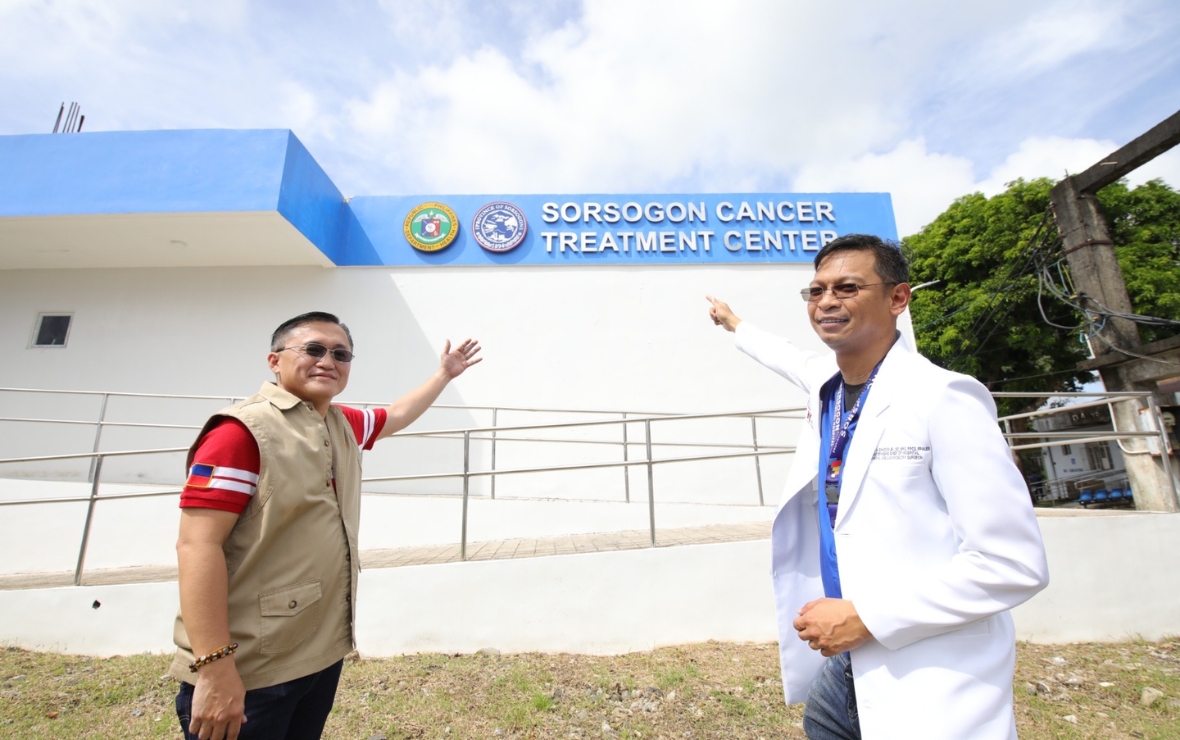SENATOR Christopher “Bong” Go lauded the establishment of the Healthway Cancer Care Hospital (HCCH), the Philippines’ first dedicated cancer care facility. The hospital, inaugurated by President Ferdinand Marcos, Jr., in Arca South, Taguig City on Friday, November 24, stands as a testament to collaborative efforts in improving health services.
“With the help of the HCCH, we can revolutionize the cancer care service industry in the Philippines through modern, state of the art equipment coupled with leading medical professionals and oncologists. It will certainly positively reflect on the country’s growing potential as a leading healthcare destination in Asia,” said President Marcos Jr. during the inauguration.
Go, chairperson of the Senate Committee on Health, acknowledged the importance of such initiatives, stating, “Ang pagbubukas ng HCCH ay isang malaking hakbang para mapabuti ang access sa quality cancer care para sa maraming Pilipino.”
Go’s commitment to improving healthcare in the Philippines, particularly in the area of specialized healthcare, is further evidenced by the enactment of Republic Act 11959, also known as the Regional Specialty Centers Act, where he was the principal sponsor and one of the authors in the Senate.
This law, signed by President Marcos Jr. on August 24, is a strategic move towards decentralizing specialized healthcare in the country and bringing critical medical services closer to the people. This legislation mandates the creation of Regional Specialty Centers within the existing framework of Department of Health (DOH) regional hospitals. It is a crucial step in ensuring that specialized healthcare services, similar to those provided by the HCCH, are accessible in various regions across the country.
Go further lauded the continuing efforts of both the government and the private sector in promoting the health and well-being of Filipinos.
“Ito ay nagpapakita ng malakas na kooperasyon ng gobyerno at private sector sa pagpapalakas ng ating healthcare system,” he remarked.
“Sa tulong ng ganitong mga ospital, maaari nating i-revolutionize ang cancer care service industry sa Pilipinas at makatulong sa maraming mga Pilipino na may cancer,” Go stated.
The HCCH offers comprehensive services, including radiation oncology, surgery, chemotherapy, and palliative care.
Meanwhile, Go emphasized the importance of allocating sufficient funds for specific healthcare programs, especially for cancer which is one of the top causes of death in the country.
He pointed out that the Cancer Assistance Fund (CAF) for this year was set at P500 million through the collective efforts of lawmakers last year. Go proposed for this to be doubled to P1 billion for the next year so that government can provide sufficient support and assistance particularly to indigent cancer patients.
“Sa dami ng cancer patients na nangangailangan ng tulong, sigurado naman pong mauubos yan at hindi katanggap-tanggap na hindi ninyo magastos ang pondo sa pagtulong sa kanila,” he reminded DOH.
Drawing from his previous advocacy, Go has been a consistent voice for increased funding for the CAF. “Dapat patuloy na pataasin ang budget para sa cancer assistance fund,” he said in an earlier interview.
He also stressed the financial burden that cancer places on families, stating, “Talagang pipilayan ang pamilya tuwing nagkakanser ka, pilay na po ang inyong pamilya, halos hindi na po nakakatrabaho ‘yan, nakafocus na po sa pagpapagamot.”
The senator’s call for increased funding aligns with the National Integrated Cancer Control Act (NICCA), under Republic Act No. 11215, signed by former president Rodrigo Duterte in 2019. The law also establishes the National Integrated Cancer Control Program, which seeks to provide “affordable and accessible” medical treatment. Within NICCA, CAF plays a pivotal role in offering financial support to cancer patients across the nation.
“The more na dapat po ay dagdagan natin ang pondo para sa cancer assistance fund, the more we should invest sa ating healthcare system,” Go urged.
He also emphasized the need to bridge the gap between the high cost of cancer treatment and the financial means of those who need it most.
“It is for this reason that I continue to advocate for a larger allocation for the CAF. Every peso invested in cancer assistance is an investment in the health and well-being of countless individuals and their families,” he said.
Furthermore, Go expressed his support for a proposed cancer fund intended to aid Overseas Filipino Workers (OFWs), a project championed by the late Secretary Susan “Toots” Ople of the Department of Migrant Workers (DMW).
“This initiative highlights the urgent requirement to offer aid and compassion to the modern-day heroes who are confronting cancer while working far away from their homes,” he concluded.
Go, on Friday, November 24, also personally inspected the Sorsogon Cancer Treatment Center and the newly renovated Sorsogon Provincial Hospital in Sorsogon City, projects he supported in his capacity as vice chairperson of the Senate Committee on Finance.
“Kamakailan ay isinulong ko na mabigyan ng kaukulang pondo ang Sorsogon Provincial Hospital para ma-renovate, mapalaki at mapaganda ito, at mabigyan din ng karagdagang hospital equipment,” he said.
“Kasama ang lokal na mga opisyal noon sa pamumuno ni former governor at kapwa ko senador Chiz Escudero, isinulong rin natin ang pagtatayo ng cancer treatment center dito sa Sorsogon para mabigyan ng karampatang atensyon ang mga may ganitong sakit. Isa ito sa mga inisyatibo natin para ilapit ang serbisyong pangkalusugan na kinakailangan ng ating mga mamamayan sa kanilang komunidad,” he added.
Go emphasized the crucial link between health and development. He remains committed to improving healthcare in communities by ensuring that public health services and its facilities can be accessed by the poor and those in need of government assistance the most.







